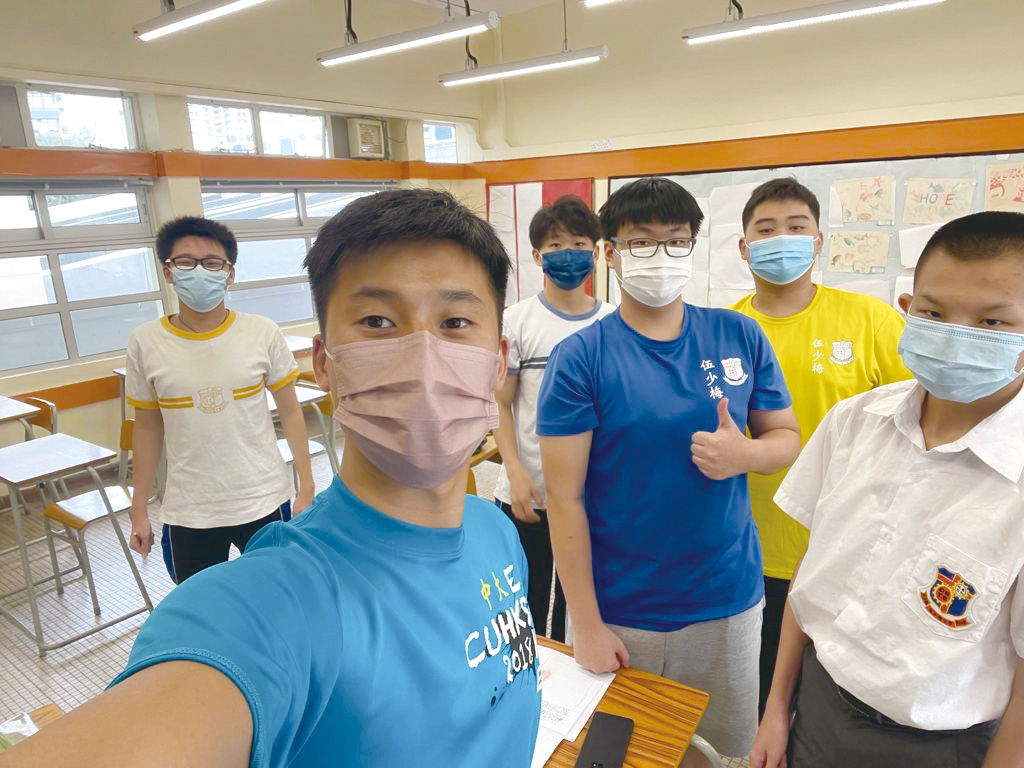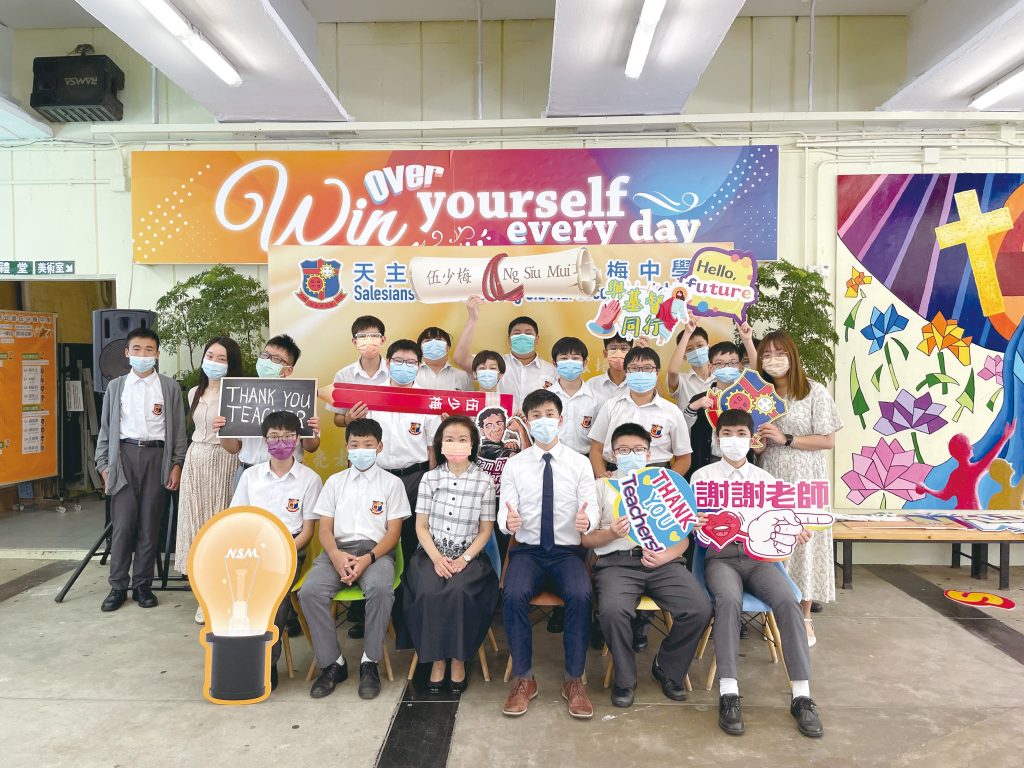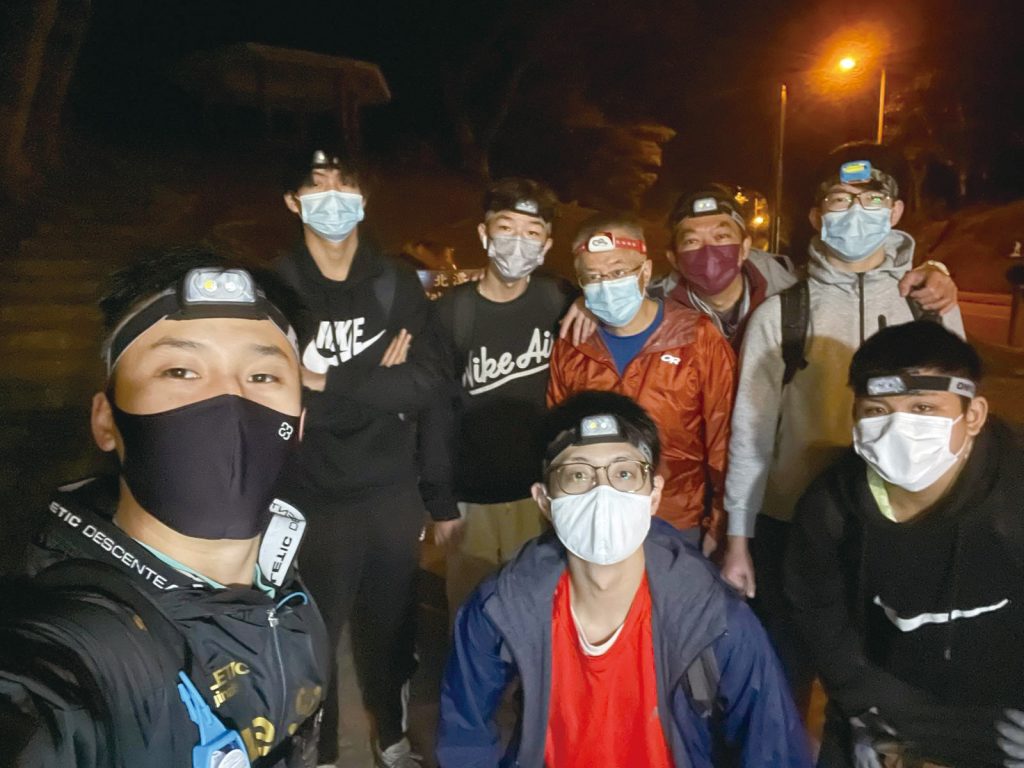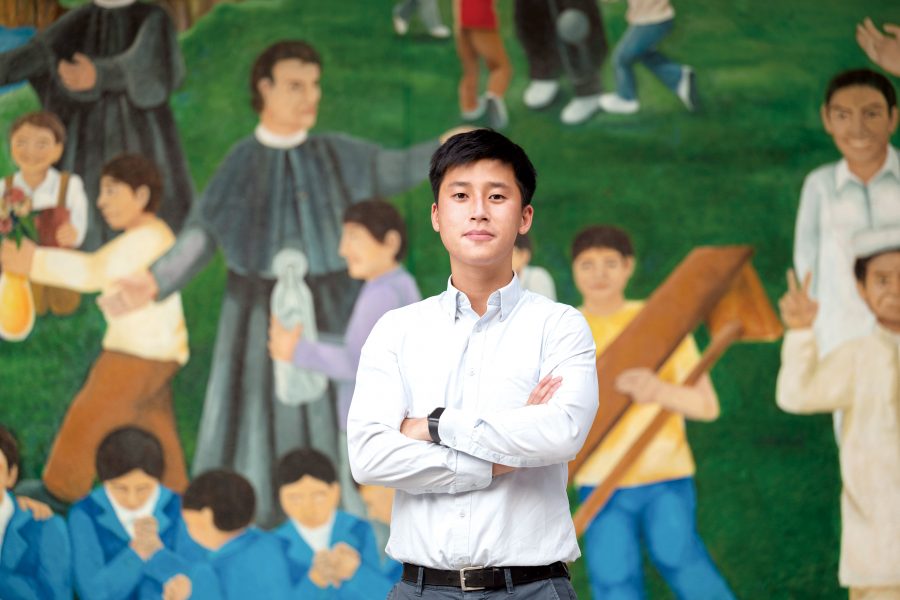Standing before me is Alvin Wong, a teacher at Salesians of Don Bosco Ng Siu Mui Secondary School and the winner of the 10th Szeto Wah Award for Early Career Teacher. Stepping into his fourth year of teaching, the young teacher has been a rock for the teenage students who seek care, guidance, company and understanding at this stage of their lives.
With a major in sports science, Alvin joined the Salesians of Don Bosco Ng Siu Mui Secondary School family as a teaching assistant for a summer programme that helps Primary Six students segue into Form One. To many teenagers, it takes time to adapt to the move into secondary school and the experience of a new school, learning environment and set of friends. Alvin took on the responsibility to accompany his students while they tried to adapt and fit in. The experience, however, took him by surprise. He shares, “As a sports science major, I taught children to play ball games when I was in university. However, it was very different from working as a teaching assistant at Salesians of Don Bosco Ng Siu Mui Secondary School. I used to think of actions like waiting in line and obeying the rules as normal behaviour. Only after working here did I realize that asking students to behave is not an easy feat. Feeling lost, I had to ask my colleagues for help and observe the more experienced teachers. More importantly, I learnt to see things from students’ perspectives: why are their opinions different from mine? Why do they disobey the rules? Due to a lack of self-confidence and support from family, underprivileged students easily choose to live up to the label of ‘Band Three students’. The reality is that their struggles far exceed our imagination. If we label them only by their grades, we will break them further and create a vicious cycle. Most of us in the education sector understand the ‘student-centered’ educational approach, but this school is the best place to implement it.”

Building close relationships with students through sports
Is students’ obedience related to the labels we implement on them? Alvin says, “In my opinion, young people’s attitudes are affected by their self-confidence. I used to talk to my students in a commanding manner – such as, ‘you have to stand here’ or ‘you cannot do that’, the way old-school teachers are accustomed to. To build closer relationships with students and understand them better, I started to communicate with them using a different approach and they eventually listened to my commands. While it did not happen overnight, we can get students to behave with just a bit of time and patience.” Is this not what education is about?
“Apart from imparting knowledge, an educator should also cultivate and accompany. I sometimes tell my students that they can foster strong bonds with both their classmates and teachers in a boys’ school. In my secondary school days, teacher-student relationships were limited to our time on campus. During my first year as a teaching assistant, I spent every recess and lunchtime playing ball games with students as boys tend to bond over sports. Not only did it feel natural for me to connect with students in this way as a sports science major, but it is much easier to cultivate trust and self-confidence on the court than in a classroom. Sometimes, I would tell my students, ‘Good job! You are so energetic, so do not fall asleep in class later!’ Or give them a gentle reminder in the classroom, ‘You were so energetic on the court, why are you dozing off now?’ They will make an effort to prove to you that they can behave.” Alvin now teaches liberal studies and physical education. Before the pandemic, he played basketball, table tennis, football and jianzi with students every recess. “After seeing the senior students play, the junior students would want to join the game or beat their teachers. This is how we slowly build our strong teacher-student relationships.”
“They do not need me, I need them.”
We cannot imagine the challenges that grassroots students face! Some of them are new immigrants who not only need to adapt to a new school, but a new city at the same time; some are separated from their parents who live in mainland China and have developed poor habits due to insufficient support from family in the junior secondary years; some come from single-parent families; others always face empty walls at home as their parents have long working hours. “Playing ball games after school means these students are not wandering on the streets. This
way, I get to watch them grow up, know who their friends are and help them solve problems whenever necessary. Some students like to stay behind until late. Even if I ask them to leave at around 6pm, they still remain. Obviously, giving up on these students would mean that the entire world has given up on them. I told the students I have known since they were in Form One that their first year as secondary school students was my first year as a teacher and that I am growing up with them. Now that they are entering Form Four, I am glad to see them mature and work towards their goals. I am honoured to have accompanied them through their adolescence and junior secondary years. Despite a difficult journey ahead, I refuse to give up on the youths. They have a long future ahead with infinite possibilities!”

As an excellent teacher, has Alvin ever considered teaching elsewhere? “The students here come from various backgrounds and possess infinite potential. They do not need me, I need them: I need students that motivate me as I encourage them to strive for better. They were the ones who made me realize that nothing is impossible! Two of my students who recently won the citywide championship in the Hong Kong Breaking Team Qualifiers will represent Hong Kong in the Youth Olympic Games in Paris; another student also won first place in a latte art competition. Their achievements have made me realize that even if they do not perform well in their HKDSE exams, they can still find their spotlight in other areas. I hope to be right beside them as they find their calling.”
Be the rock for students
While many believe that teenage boys struggle to open up to others, Alvin thinks that boys at this age require extra attention and care. As well, they will happily let us in as long as we are willing to care for them. “Some students are timid, quiet and perhaps have special educational needs. However, they gladly respond to me whenever I pass by them, pat them on the shoulder and ask them how they are doing. Most students are like this. Once they realize that you genuinely care about them, they will be willing to share their woes with you. You must become their rock and the ‘tree hole’ for them to vent. Repressed feelings may lead to an emotional breakdown, so I volunteer to be their listener. Other times, I refer them to their class teachers who can offer them better help as they may be more familiar with their backgrounds.”
Magnify students’ strengths in positive education
When it comes to facilitating home-school cooperation, how does Alvin’s communication with parents’ fare? “When I discuss students’ report cards with parents, I usually start from their strengths like attaining second place in a subject or scoring almost 80 points. Magnifying students’ strengths with positive comments before pointing out their weaknesses is a huge encouragement for both children and parents. Amplifying students’ performance in the subjects they excel in is especially important as it encourages them to further explore their passion in the arena. With this communication approach, students become much more proactive in the following school term; they also understand that parent-teacher meetings are not a day for teachers to tattle on them, but a chance for parents to recognize their learning outcomes. Some students even plea for me to tell their parents about their active participation across school teams, for instance. When they want to show off their strengths, their learning attitude changes as well. This should be how we teach children nowadays as being too strict with them may backfire.”

Principal Li Kin Man of Salesians of Don Bosco Ng Siu Mui Secondary School nominated Alvin for the 10th Szeto Wah Award for Early Career Teacher for his undue care for his students and passion to explore their potential and strengths. In fact, this people-oriented educational approach is shared by every faculty member at the school. During the Lunar New Year holiday, Principal Li, Alvin and two other teachers hiked with a number of students to Sharp Peak to watch the sunrise. They began their hike at 11pm in Sai Kung and completed the four-to-five-hour journey in just three hours. After that, they happily waited for the break of dawn and sunrise on the hilltop. Besides, the school often arranges service-learning opportunities for students such as picking up plastic bottles on hiking trails. Through teaching by example, these students are inspired to make society, their teachers, their families and themselves proud. ~ Helena Hui

